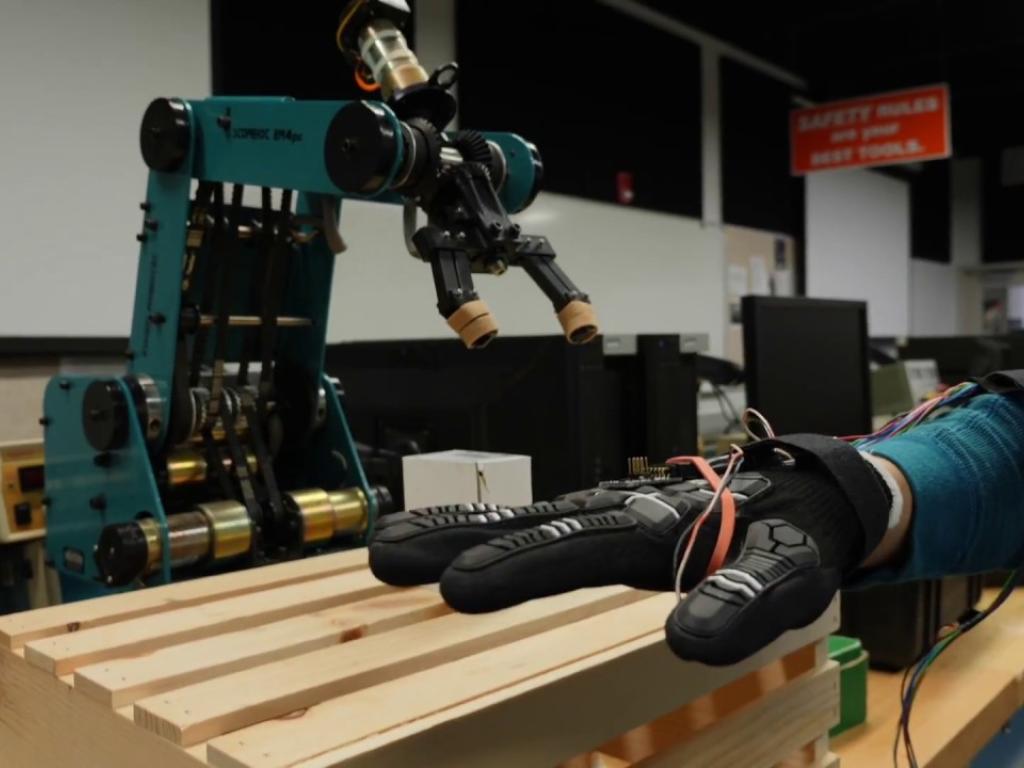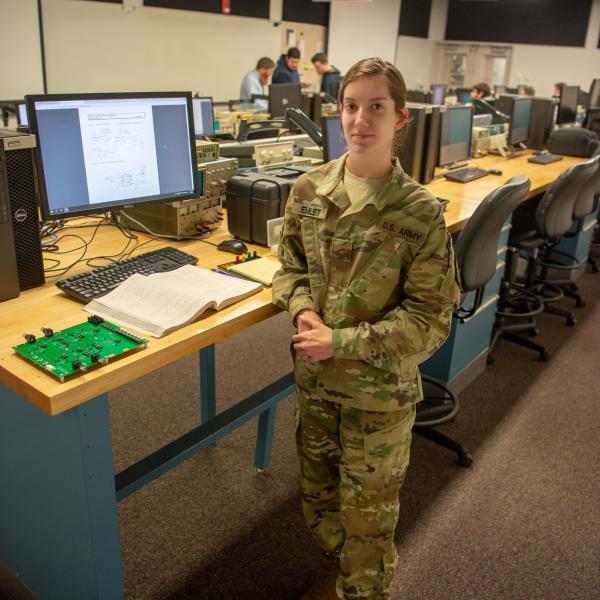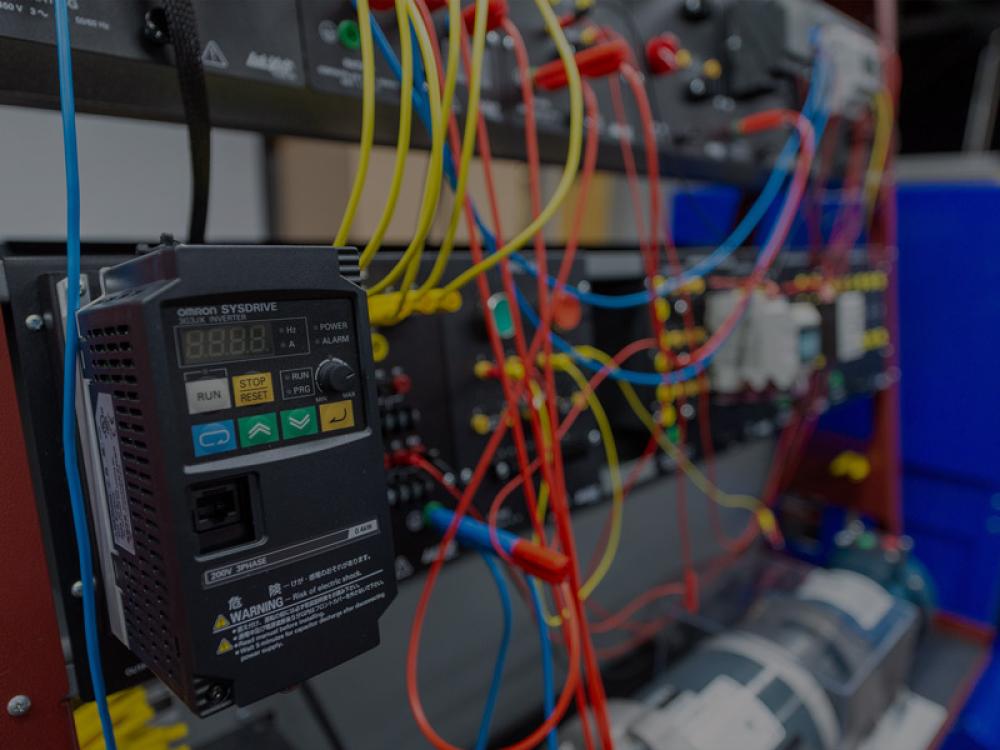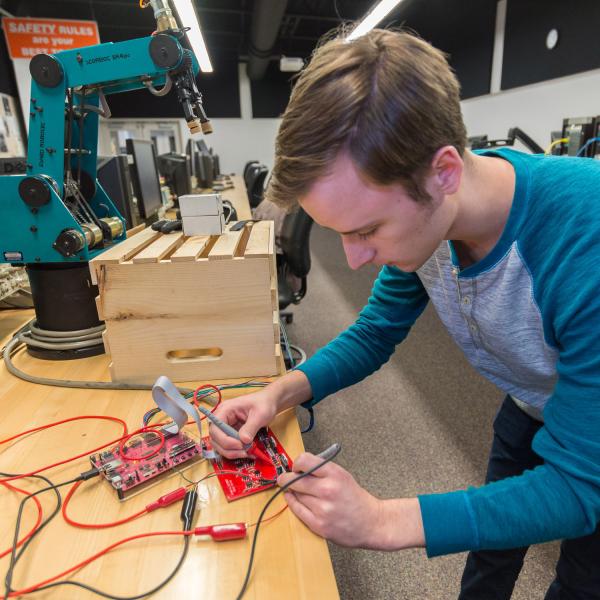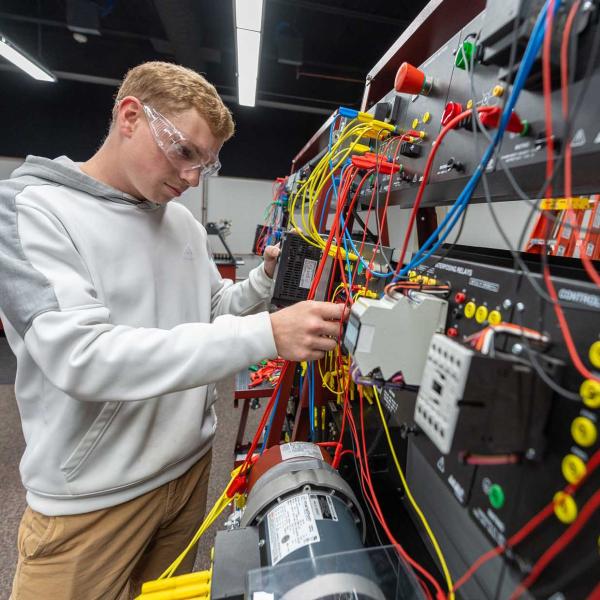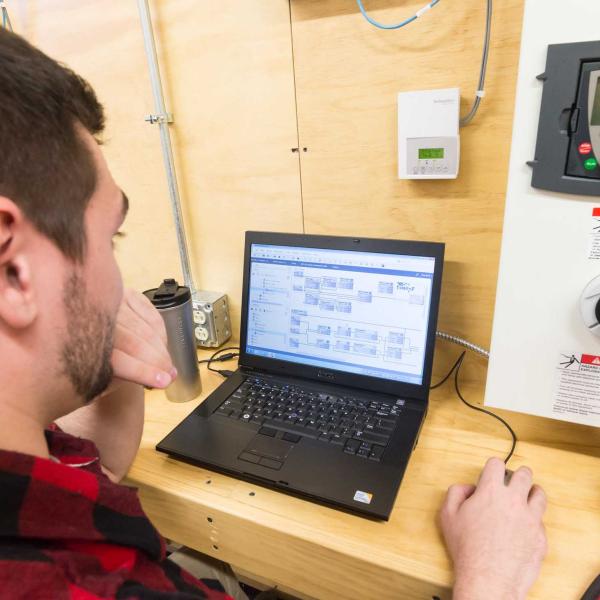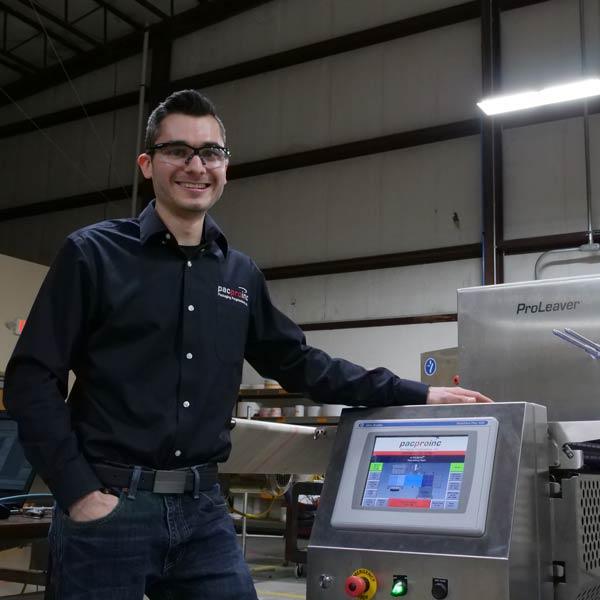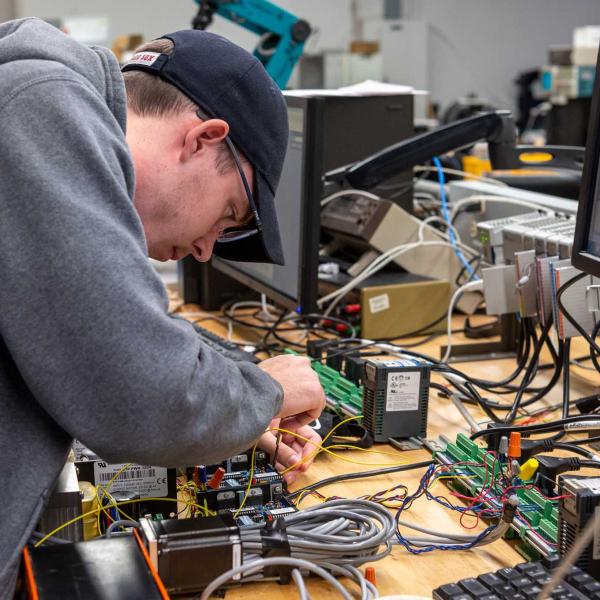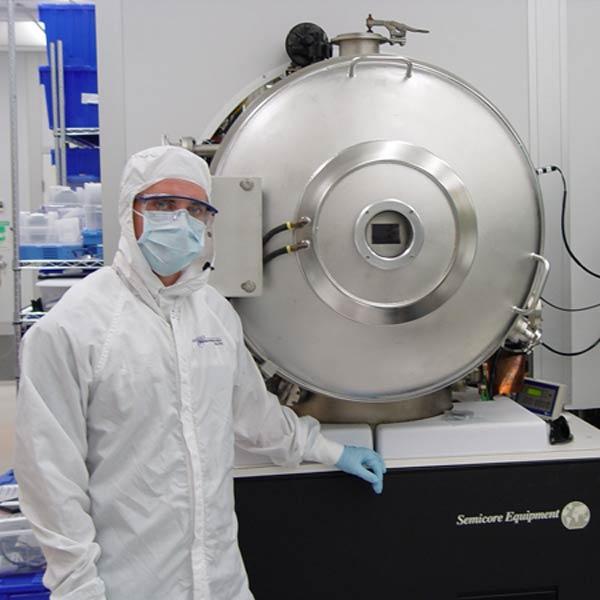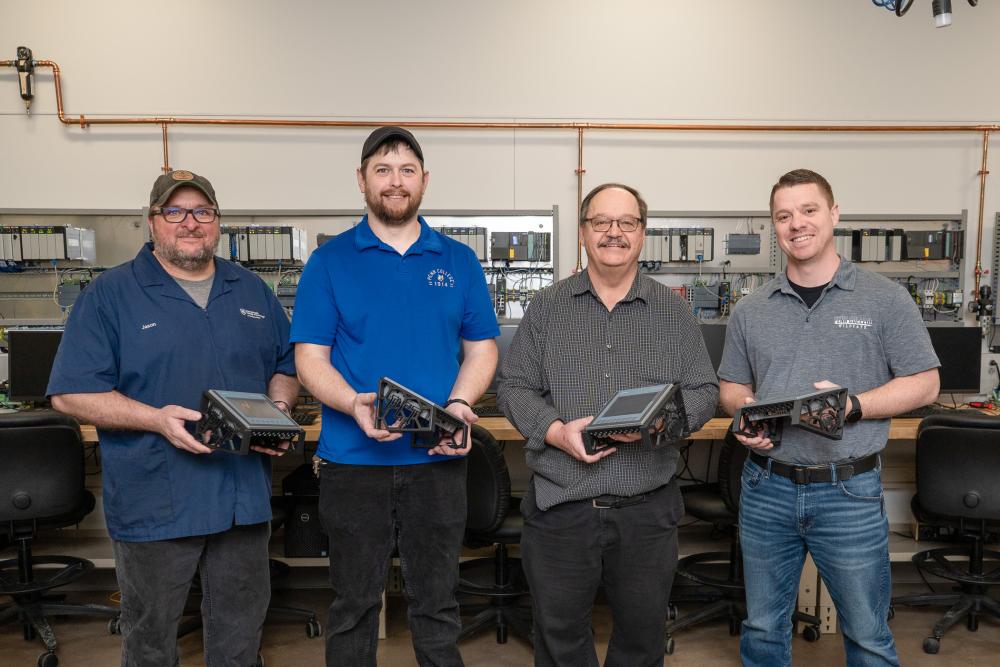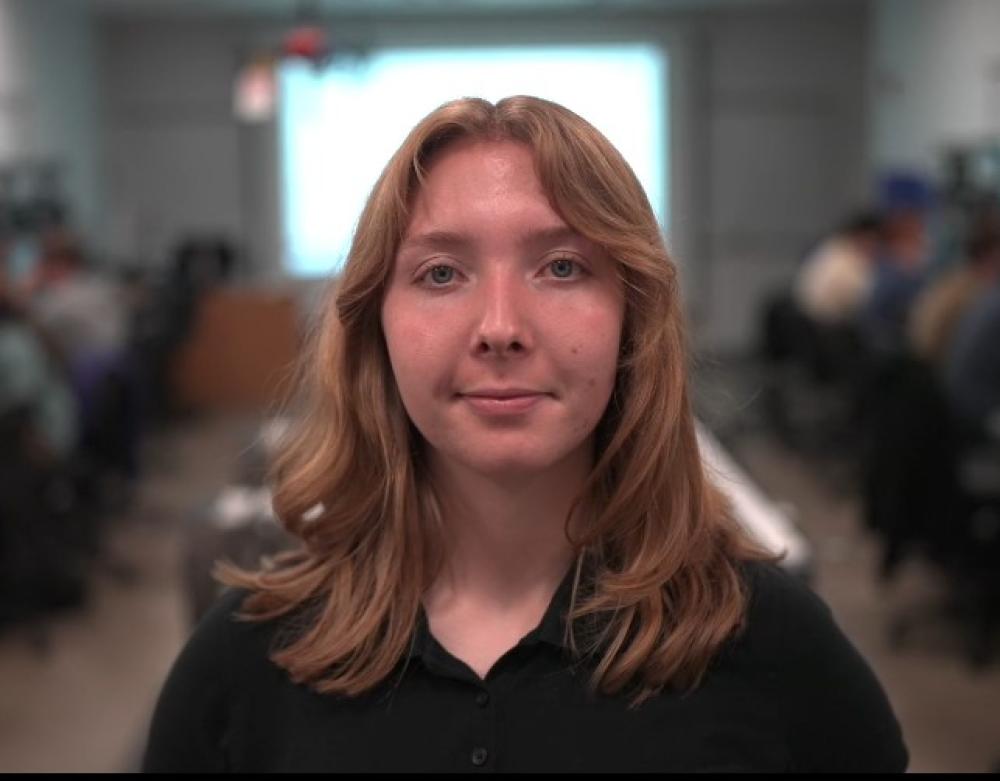Electronics & Computer Engineering Technology: Robotics & Automation Emphasis

About this program
Critical thinking meets problem solving. Toss in a handful of Boolean logic expressions and some truth tables and you’re well on your way to an education in electronics. Pair that foundation in electronics with advanced training in programmable logic controllers, hydraulic and pneumatic systems, and vision and motion control systems, and you’ll be ready to dive into a career in this thriving field.
As an Electronics & Computer Engineering Technology: Robotics & Automation student, you're eligible to pursue a dual degree in Automation Engineering Technology: Robotics & Automation or Building Automation Engineering Technology.
Next steps...
You're on your way to becoming a tomorrow maker.
Extensive Hands-On Experience
17
Average Class Size
Seamless Associate-to-Bachelor Degree Pathway

Careers
- Automation controls technician
- Project engineer
- Programmer
Courses
At Penn College, we believe your educational experience should go beyond specialized skills. Real-world ready means taking a broader approach that builds communication skills, inspires collaboration, and encourages exploration of arts, history, and science.
Specialization requires in-depth knowledge and high-level proficiency. Students learn and apply major-specific concepts, skills, and methods.
- PERELCElective Courses - 3 Credits Required
Perspectives are points of view, offering a variety of ways of understanding, interacting, and influencing the world. Students identify, explain, and utilize the approaches used by academics and professionals to study, analyze, or understand problems, and offer solutions.
- SCIELCScience Elective
Foundations are the practical, intellectual, and social skills: communication, collaboration, critical and ethical thinking, quantitative thinking, and technological literacy that are crucial to every student at every stage of education and at every stage of life.
- EET114Introduction to Digital Electronics
- EET115Digital Circuits Applications
- EET116Electronic Circuits & Devices I
- EET124Engineering, Technology & Society
- MTH181College Algebra & Trigonometry I
- EET154Introduction to Microprocessors
- EET155Microprocessor Applications I
- EET156Electronic Circuits & Devices II
- EET158Software Tools for the Engineering Technologist
- ENL111English Composition I
- MTH183College Algebra & Trigonometry II
- EET204Network Installation & Maintenance
- EET205Network Maintenance Laboratory
- EET209Systems Troubleshooting Applications
- EET246Robotics & Fluid Power
- EET248Introduction to Automation Control Concepts & Applications
- ENLP2Select One Course: ENL121 or ENL201
- EET258Advanced Automation Control Concepts & Applications
- EET254Process Control Theory
- EET255Process Control Applications
- EET256Motion Control
Maker Profiles
Tour Schedule
Seeing is believing.
Think Penn College might be a good fit for you? Make plans to visit and discover what hands-on learning is all about.
Facilities
Lab Tour
Take a look inside the vast world of electronics and computer engineering. In this tour, you'll walk through several labs loaded with equipment. From conveyor systems, robots, and PLCs to oscilloscopes and microprocessor boards, you'll see it all.
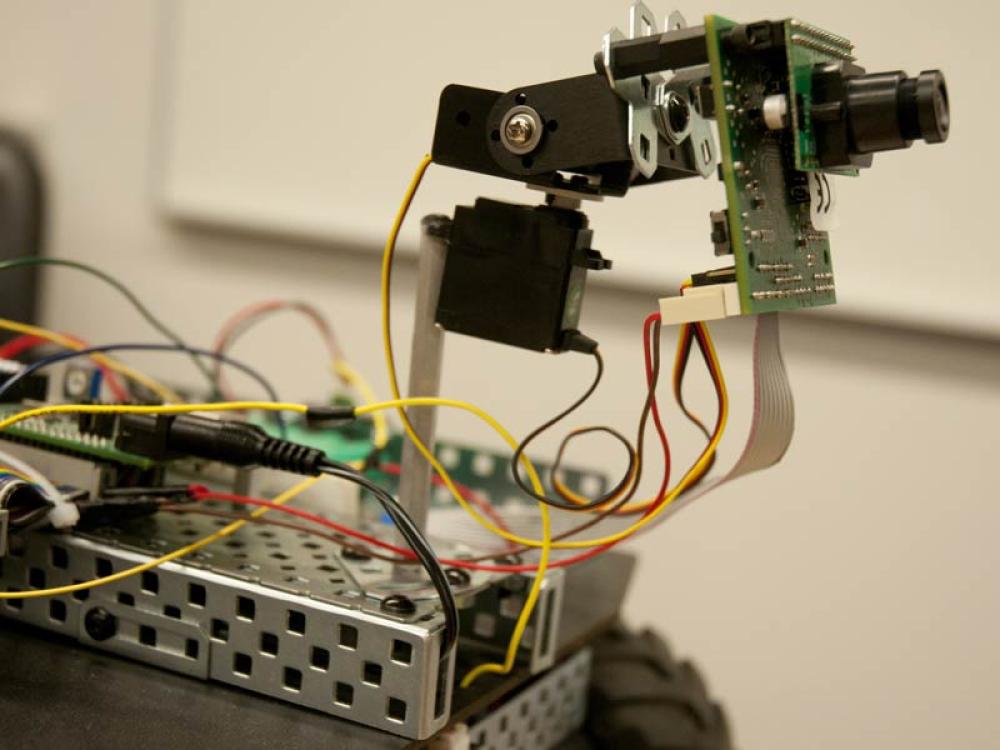
Facilities
Robotics Lab
Get hands-on experience in specialized labs using industry-standard equipment like PLCs, Cognex cameras, and Fanuc robots.
Internship
Your knowledge in practice
Internships are key for career preparation. Apply your knowledge to the workplace and learn about the industry first-hand.

Related Programs
Follow your passion
Student Life
Lead and put your skills to the test
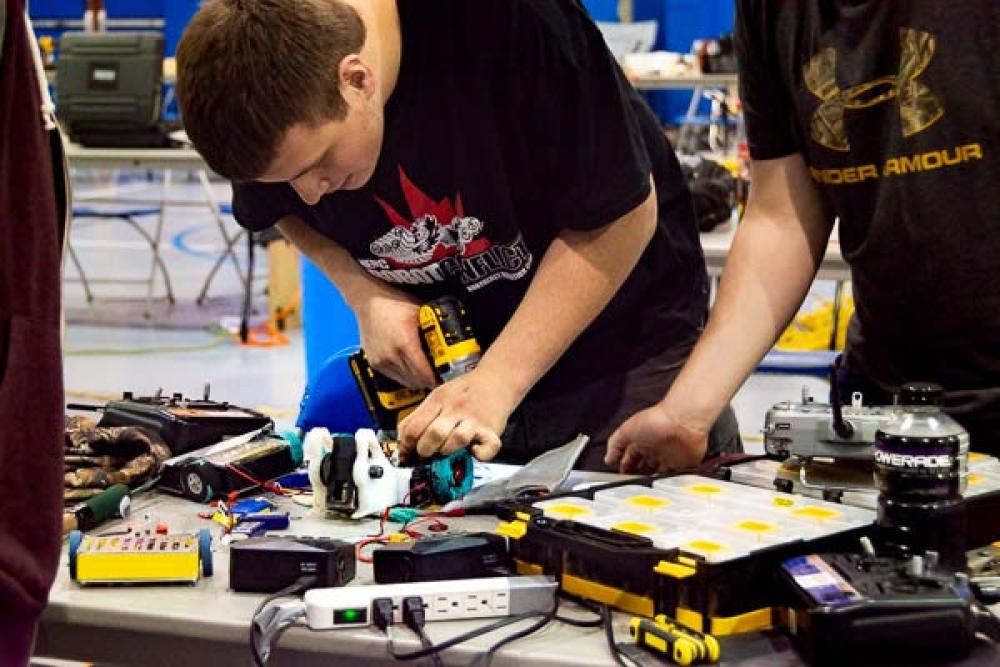
Student Wildcats of Robotic Design (SWORD)
SWORD allows students to learn and enhance valuable skills in design and manufacturing situations, project management, business presentations, graphics and web design, and computer applications.
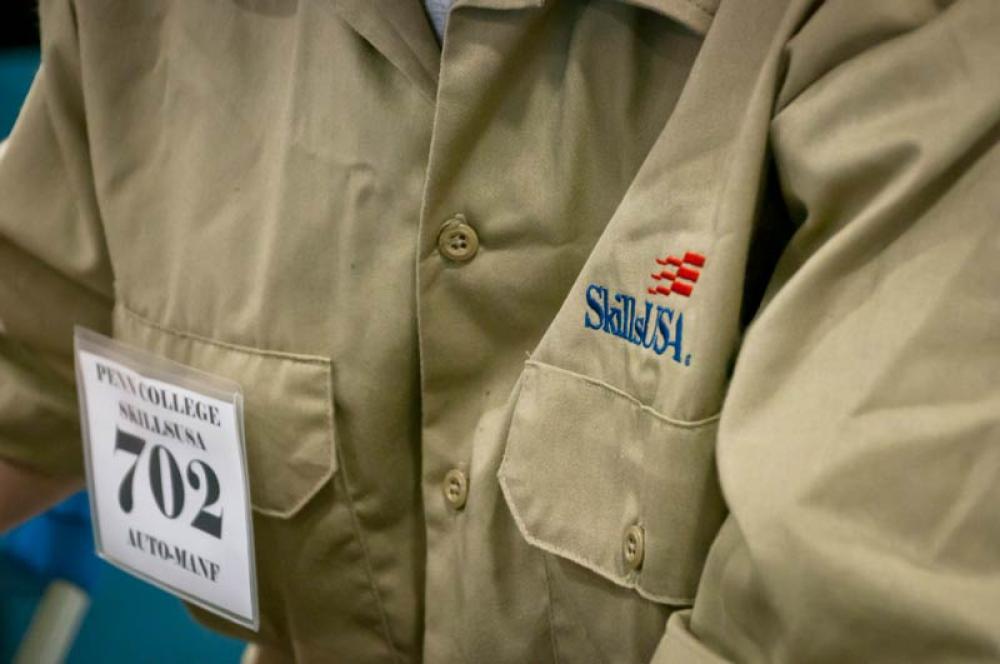
SkillsUSA
Participation in SkillsUSA gives students a chance to compete in more than 80 national competitions.
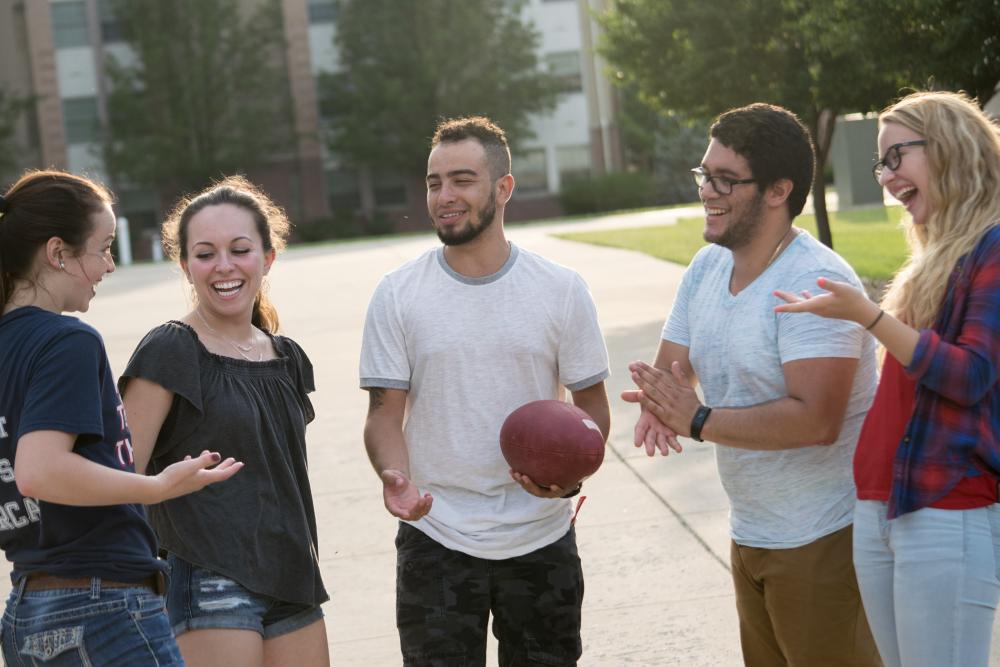
Student Organizations at Penn College
Your college experience is about more than the classroom. Join one of 65+ clubs and organizations, or create your own.
Penn College News
Tuesday, February 10, 2026
Collaboration benefits Penn College automation students
Monday, December 8, 2025
VIDEO: Taking the lead
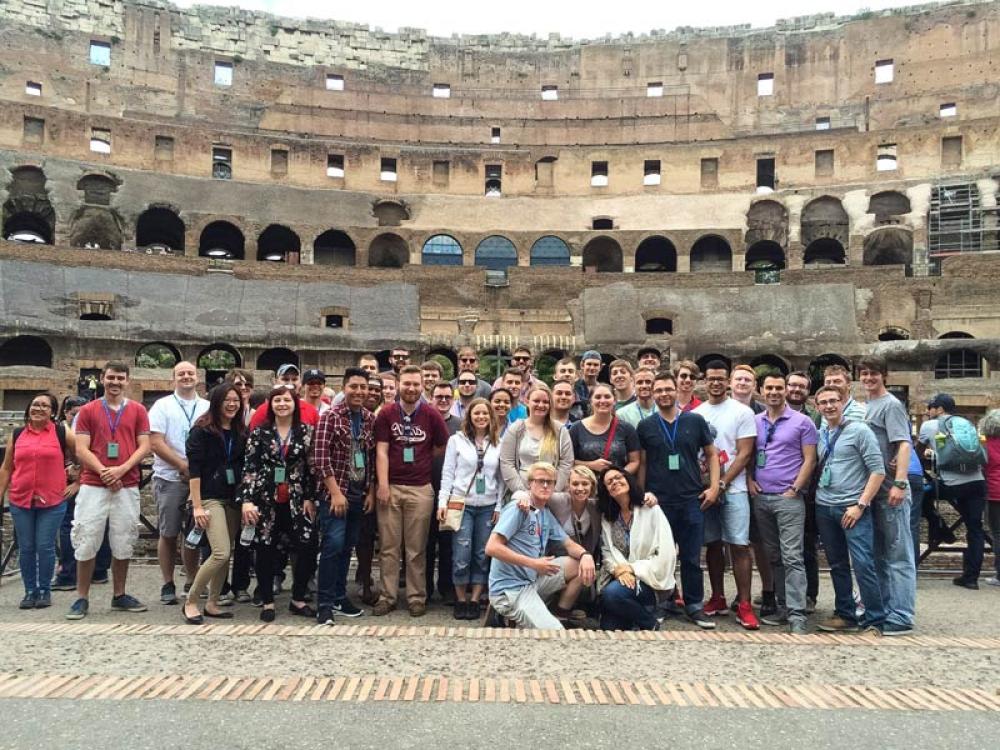
Study Abroad
Gain global experience
See the world via Williamsport. Take your education abroad and get hands-on experience learning about your industry on a global scale.
More Information
This major is subject to the transfer standards established by the College (see http://www.pct.edu/admissions/transfer/Transferring-Credits). Exceptions must be approved the school dean.
Students are advised not to purchase new tools before meeting with faculty on the first day of classes.
It is suggested that students have at least the recommended tools. Instructors will help identify what tools are needed during the first day of class. Free lockers are located in the laboratory area.
View the Electronics & Computer Engineering Technology Tools.
Uniforms and tools are available for purchase through The College Store .
Electronics & Computer Engineering Technology Program Review Executive Summary
Cadence University Program Member
Cadence products presently used at Penn College. Read More
Alternative Credit refers to academic credits earned through means other than traditional college course completion, including: credit by exam, articulation, proof of competency gained in high school, work/life experience, and advanced placement.
Visit the Alternative Credit Options page for requirements and procedures and for information on credit through Advanced Placement.
- Ross Bird, '01, '99, VP of Operations, QorTek
- Mr. Eli Hughes, '01, Co-founder, Tzero
- Mr. Carl J Krause, Vice President - Operations, KB Systems Inc.
- Mr. Nelson May, '03, Director of Systems, Gerhart
- Mr. Chris Roush, Vice President, Multi-Dimensional Integration
- Mr. Jonathan S Schall, '95, '99, Controls Engineering Manager, First Quality Products
- Mr. Leonard D Schwartz, Technical Instructor, OWL Services
- Mr. Roman J Scicchitano, '15, '18, Senior Supervisor, Electrical Engineering - Power/Analog, L3Harris Technologies, Inc.
- Mr. Gregory C Stanek, Technical Services Supervisor, Lutron Electronics Company, Inc.
- Mr. Thomas J VanSant Jr., '86, Measurements Engineer, Corning, Inc.

